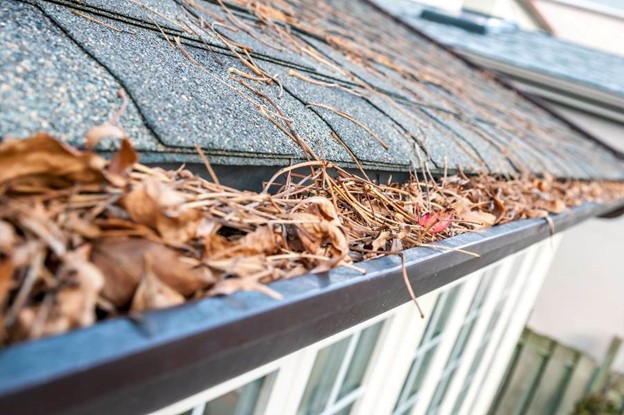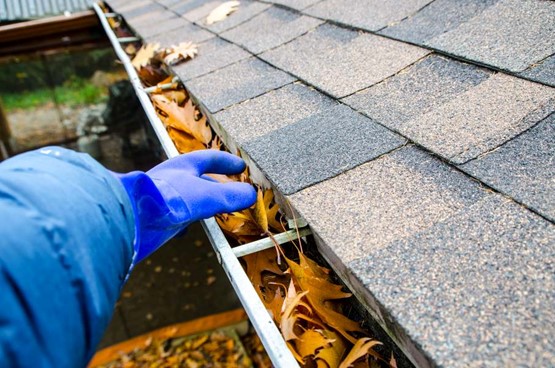Preventing Mosquito Breeding in Florida Gutters

Mosquitoes are not just an annoyance; they pose serious health risks by transmitting diseases like Zika, West Nile Virus, and dengue fever. For homeowners in Florida, where mosquitoes thrive year-round, keeping your gutters free of standing water is foundational for preventing breeding grounds. With the right strategies, you can maintain a mosquito-free environment while protecting your family. In this guide, we’ll walk you through the steps to keep your gutters—and your home—mosquito-free.
The Importance of Gutter Maintenance for Mosquito Control
Mosquito prevention for gutters isn’t just about comfort; it’s also a matter of health. Florida’s warm climate and frequent rain make gutters a prime breeding ground for mosquitoes. When gutters are clogged with leaves, dirt, and other debris, they can hold standing water, providing the perfect environment for mosquitoes to lay their eggs. Regular gutter maintenance disrupts this cycle.
Understanding the Mosquito Breeding Cycle
Before tackling the problem, it’s helpful to understand the mosquito breeding cycle. Female mosquitoes lay their eggs in stagnant water. Within days, these eggs hatch into larvae, then pupae, and finally, adult mosquitoes. Interrupting this cycle by removing standing water can significantly reduce mosquito populations.

Regular Gutter Cleaning
Step 1: Schedule Regular Cleanings
Regularly cleaning your gutters is the first line of defense against mosquitoes. Aim to clean your gutters at least twice a year—in the spring and fall. However, in Florida’s climate, where rain and storms are frequent, consider more frequent cleanings.
Step 2: Remove Debris
Use a ladder to access your gutters safely. Wear gloves to remove leaves, twigs, and other debris. You can use a small trowel or a gutter scoop to make the job easier. Make sure all downspouts are clear to allow water to flow freely.
Step 3: Flush with Water
After removing the debris, use a garden hose to flush out any remaining dirt and ensure water flows through the gutters and downspouts without obstruction. This step helps identify any hidden clogs.
Install Gutter Guards
Step 4: Choosing the Right Gutter Guards
Gutter guards can be an excellent investment for preventing debris buildup. They come in various materials and designs, including mesh screens, foam inserts, and reverse curve systems. Choose a type that suits your home’s needs and budget.
Step 5: Installing Gutter Guards
Once you’ve selected the right gutter guards, follow the manufacturer’s instructions for installation. Most guards are easy to install and do not require professional help. Gutter guards significantly reduce the frequency of cleaning by preventing debris from entering the gutters.
Inspecting for Standing Water
Step 6: Regular Inspections
Even with gutter guards, it’s important to inspect your gutters regularly for standing water. After a heavy rain, check your gutters to make sure they are draining correctly. Standing water in gutters is a red flag that needs immediate attention.
Step 7: Addressing Low Spots
Gutters should have a slight slope toward the downspouts to promote proper drainage. If you notice areas where water pools, it may be due to low spots. Adjust the hangers to create an even slope and prevent water accumulation.
Using Biological Controls
Step 8: Introducing Mosquito Dunks
Mosquito dunks are a biological control method that can be used in gutters that are prone to standing water. These dunks contain Bacillus thuringiensis israelensis (Bti), a bacterium toxic to mosquito larvae but harmless to humans and pets. Place them in areas where water tends to pool.
Step 9: Regular Replacement
Mosquito dunks are effective for about 30 days. Replace them monthly during the mosquito season to ensure continuous protection.
Reduce Surrounding Mosquito Habitats
Step 10: Landscaping Tips
Apart from gutters, mosquitoes can breed in other areas around your home. Regularly inspect your yard for items that can collect water, such as flowerpots, birdbaths, and buckets. Check that these items are emptied or treated with Bti.
Step 11: Trim Vegetation
Mosquitoes seek shelter in tall grass and dense vegetation. Maintain your yard by regularly mowing the lawn and trimming bushes and shrubs. This practice reduces resting sites for adult mosquitoes.
Professional Help for Persistent Problems
Step 12: When to Call Professionals
If you find it challenging to keep up with gutter maintenance or suspect a severe mosquito problem, consider hiring a professional pest control service. Experts can provide practical solutions, including gutter cleaning, installation of gutter guards, and targeted mosquito treatments.
Step 13: Regular Pest Control Services
Professional pest control services can offer regular inspections and treatments to keep your property mosquito-free. They can also provide valuable advice on maintaining a mosquito-resistant environment.
Community Efforts for Mosquito Control
Step 14: Community Involvement
Mosquito control is more effective when entire communities work together. Encourage your neighbors to maintain their gutters and reduce standing water on their properties. Community-wide efforts can significantly reduce mosquito populations.
Step 15: Local Resources and Programs
Many local governments and organizations offer resources and programs for mosquito control. Participate in community clean-up events and take advantage of free mosquito dunks or educational materials provided by local authorities.
Get More Tips from Paul Bange Roofing
Preventing mosquitoes in gutters is a vital part of mosquito control for Florida homeowners. By following these steps, you can significantly reduce the risk of mosquito-borne diseases and enjoy a more comfortable, mosquito-free home environment. Regular maintenance, combined with biological controls and professional help when needed, will keep your gutters clear and your family safe.
For more tips and personalized advice, consider reaching out to Paul Bange Roofing. Our experienced team is here to provide you with expert advice and services for your specific needs. Visit our website at paulbangeroofing.com or call us at (954) 577-1234 today. Let us help you stay mosquito-free!





